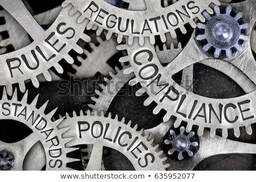
When I hear from doctors who are looking for good non-clinical jobs, physicians often include a list of positive attributes such as 'I work well with others,' 'I am eager to learn,' or 'I have a strong interest in starting my own business.'
While these attributes are valuable in achieving success, they often don't help in gaining credibility in the transition to the non-clinical workforce, or in negotiating a competitive salary.
Your most valuable tool for finding a non-clinical job is expertise in regulations and policies.
Expertise is one of the most valuable tools that health care professionals possess. Doctors already have expertise in medical care. However, the current medical atmosphere has led to an overwhelming growth of policies in areas of coding, billing, licensing, accreditation, practice parameters, best models of health care, patient privacy, cost containment, documentation and electronic medical records- to name just a few of the complex regulatory matters that affect every aspect of health care. Whether you aspire to work in an executive or administrative role or to start your own business, a mastery of these hard to grasp regulatory issues will serve you well and can potentially make you irreplaceable. When you customize your own areas of non-clinical healthcare policy expertise, you will reap the benefits of your invested time and energy.
9 Comments
Rehab Hamouda
9/16/2017 11:21:02 pm
I m a doctor from more than 25 years and i moved to usa recently from uk.
Reply
rahul
7/31/2018 10:01:30 am
i am MD Human Physiology ..want to do training in eeg without usmle
Reply
Heidi Moawad MD
8/2/2018 11:59:51 am
There are some electrophysiology courses you can sign up for: http://www.nonclinicaldoctors.com/careers-for-physicians-without-residency.html
Reply
srinivas Yamsani
3/7/2020 09:54:08 pm
I am interested in non clinical jobs in US. So far I was practicing Emergency medicine in India nd UK. Please can you guide me about this.
Reply
Heidi Moawad
3/11/2020 12:05:33 pm
Dr. Yamsani,
Reply
Gabriela Fernandes
5/16/2020 05:02:10 am
I am a Dr from Venezuela graduated in 2003 and currently leaving in USA since 2004. I took USMLE STEP I and STEP2 but did not passed it, then i started working in Dental office and started working as an office manager until these days. Now, i feel stuck and would love to grow professionally and maybe get an MBA. My dilema is that i am a single mom of two kids and need to work to support them, but need to change job and i am not sure what job to look for.
Reply
Heidi Moawad
5/22/2020 11:41:21 am
Dr. Fernandes,
Reply
Dr Tilottama Nischal
7/2/2020 12:49:48 am
I am Doctor working as general practitioner in Internal Medicine department. I am Public Health specialist. I want to work in USA as non clinical doctor.
Reply
Brad Gurley
7/2/2020 07:02:20 am
I am a former board certified , residency trained family physician... due to medical issues I have left the clinical arena and seem non clinical options
Reply
Leave a Reply. |
Categories
All
Contents |
Information
|
Stay Connected
|